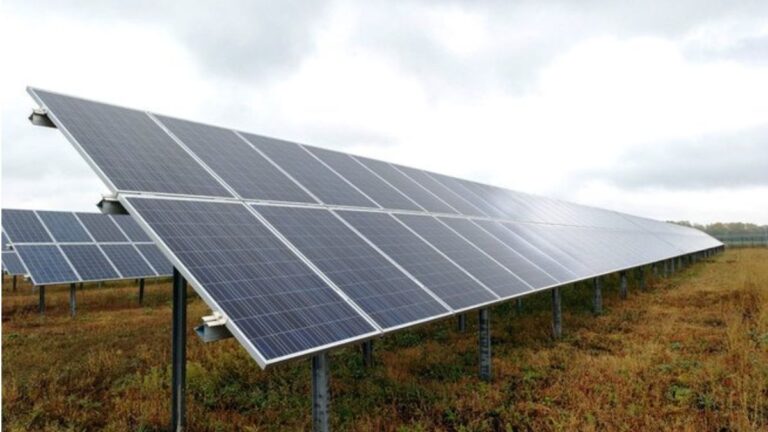Why Consider Solar Energy?
Switching to solar energy is a significant investment offering environmental and financial benefits. Solar energy reduces carbon footprints, contributing to the fight against climate change by producing clean, renewable energy. Financially, solar panels can lead to substantial savings on energy bills over time, often paying for themselves within a few years. Additionally, the solar bidding guidelines provided by experts can help you navigate the complexities of the solar market, ensuring you make an informed decision.
Furthermore, technological advancements have made solar panels more economical and efficient. Thanks to advancements in photovoltaic technology, solar panels now have higher energy conversion rates, allowing you to produce more electricity with the same amount of sunlight. This efficiency makes solar power a viable option for more households and businesses, reducing dependence on fossil fuels and lowering utility costs.
Understanding Solar Bids
Comprehending the components of a solar bid is crucial for making an informed decision. A comprehensive bid typically includes details about the type and brand of equipment, installation costs, and warranties that protect your investment. Reviewing each component carefully can prevent you from encountering hidden costs or subpar materials after the installation. For instance, understanding the difference between monocrystalline and polycrystalline panels is essential, as their efficiencies and costs vary significantly.
A reasonable bid should outline the expected energy savings, payback period, and equipment and installation costs. This information helps you evaluate the solar system’s long-term financial benefits. Some bids may also include maintenance plans and monitoring services that ensure your system operates efficiently over its lifetime.
How to Compare Solar Bids
Comparing solar bids can be daunting, but focusing on critical factors simplifies the process. Evaluate the total cost, the type and efficiency of solar panels, and the installer’s reputation. Also, the projected energy savings over time should be considered to understand the actual value of the investment. These elements will help you choose the best bid, ensuring a high-quality, cost-effective solar energy system.
Researching local regulations and incentives is also crucial. Incentive programs and tax credits can significantly reduce the upfront cost of your solar installation. For example, the Federal Investment Tax Credit (ITC) allows you to deduct a significant portion of your solar installation costs from your federal taxes. Additionally, some states and municipalities offer incentives, lowering the cost barrier.
Critical Factors in Solar Bids
- Equipment Quality and Brand
- Total Installation Costs
- Warranties and Guarantees
- Installer Experience and Reputation
- Projected Energy Savings
Each of these factors plays a crucial role in the overall value of the solar bid. Ensure that your choice meets all these criteria to get the most out of your investment. High-quality equipment and reputable installers provide peace of mind, knowing that your solar system will perform efficiently for years to come.
Common Mistakes to Avoid
One common mistake is opting for the cheapest option without considering quality. Cheap options often come with hidden costs or low-quality materials, leading to higher maintenance costs or system failures. Another mistake is failing to understand the terms of the warranties, which can leave you vulnerable if something goes wrong. Always read the fine print and ask the right questions to avoid these pitfalls.
Ensure you get clarification on what is covered under warranties and for how long. Some warranties only cover specific components or labor costs, so understanding the full scope of coverage is essential. Additionally, verify whether the installer provides a performance guarantee, ensuring your system generates electricity annually.
Using References and Reviews
Before finalizing your decision, check reviews and ask for references. Sincere client testimonials can offer insightful information about the installer’s caliber and dependability. Speaking to previous customers and visiting past installation sites can provide real-world insights into the installer’s work quality and reliability.
Additionally, look for case studies and testimonials on the installer’s website. These can provide a detailed account of previous projects, including any challenges faced and how they were resolved. Reliable installers will have a portfolio of successful installations and satisfied customers willing to share their positive experiences.
Working with Reputable Installers
A reputable installer will bid reasonably and ensure quality and safety during installation. Look for installers certified by recognized institutions, such as the North American Board of Certified Energy Practitioners (NABCEP), and those with positive customer feedback. Certification from such organizations is a good indicator of the installer’s reliability and expertise.
Furthermore, reputable installers often offer additional services, such as system monitoring and maintenance packages, ensuring that your solar system continues to perform optimally. Additionally, they are more likely to provide you with the best-customized solutions to meet your needs because they keep up with the most recent technological and industry trends.
Final Tips for Choosing a Solar Provider
Finally, take your time to evaluate all bids carefully. Think long-term and consider the overall value rather than just the upfront cost. Getting multiple quotes will give you a better idea of the market rate and help you make a more informed decision. Remember to use tax credits and local incentives to reduce your costs further.
Before making a choice, do extensive research and due diligence. To obtain in-depth knowledge, speak with business professionals, participate in online discussion boards, and visit regional solar energy workshops. Making an educated decision will optimize your investment’s returns and guarantee a more seamless switch to solar energy.
